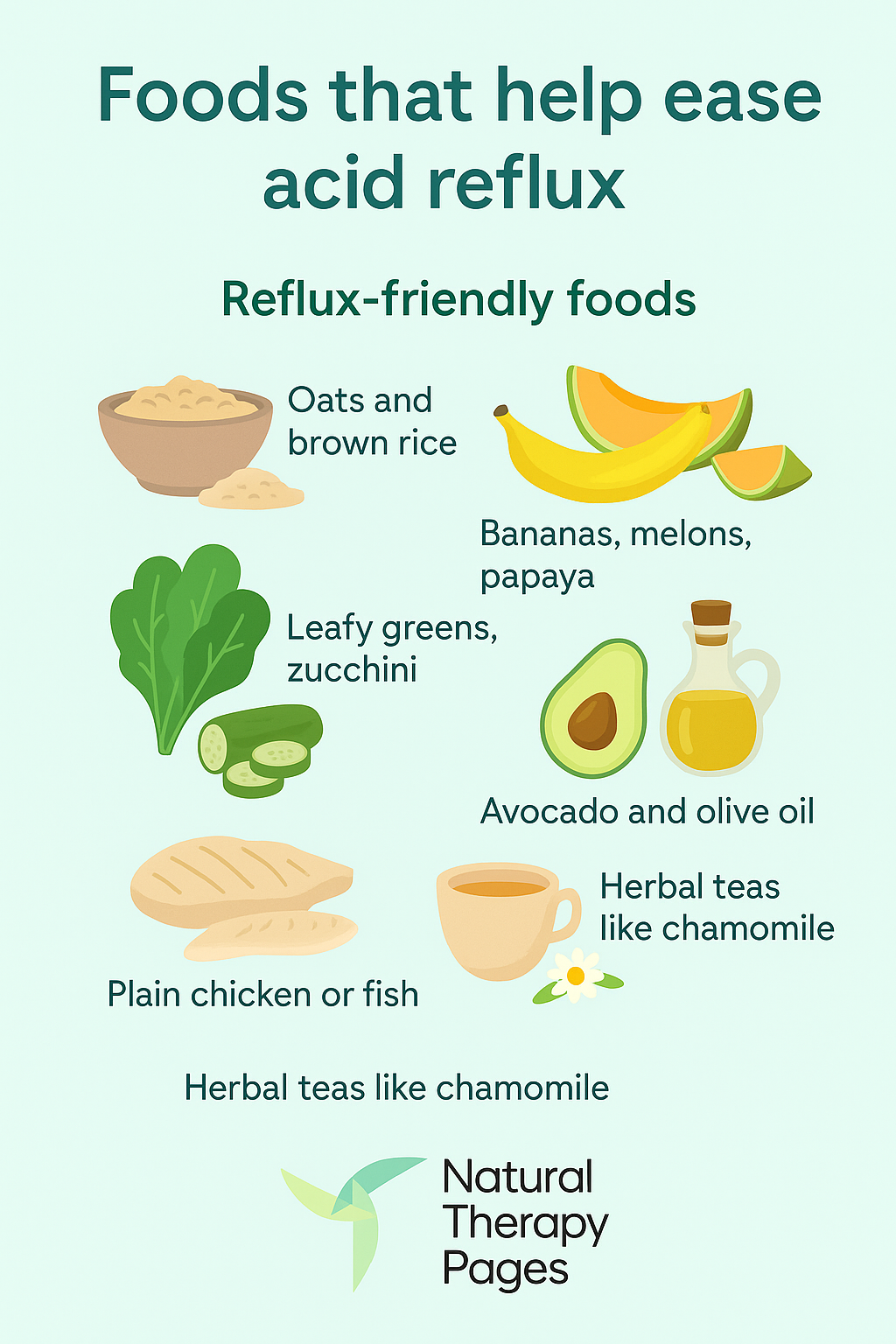
If you’ve ever felt that burning sensation rising up after a meal usually just behind the chest bone, sometimes even in your throat, you might already know what acid reflux feels like. It’s uncomfortable, annoying, and if we’re being honest, a bit scary the first few times it happens.
Acid reflux, also called heartburn or gastro-oesophageal reflux, happens when stomach acid flows back up into the oesophagus. Some people get it occasionally, while others find it sticks around, turning into a frequent problem that can impact everyday life.
But here’s the good news: what you eat plays a massive role. And while there’s no one-size-fits-all reflux diet, paying attention to your nutrition can go a long way in calming the burn.
Let’s unpack how.
What is acid reflux, really?
At its core, acid reflux is caused by a valve in your stomach — called the lower oesophageal sphincter — not doing its job properly. Instead of keeping stomach contents in place, it lets acid creep back up into the oesophagus, where it doesn’t belong.
This can lead to that familiar burning sensation in the chest, usually after meals or when lying down. But acid reflux doesn’t always show up in the same way. Other symptoms may include:
-
Chest discomfort
-
A persistent dry cough
-
Sore throat or hoarseness
-
Nausea or even vomiting
-
Food coming back up after eating (known as regurgitation)
-
Trouble swallowing
-
Dental issues like enamel erosion
-
Asthma symptoms worsening
For some people, it’s an occasional thing. For others, especially if left untreated, it can become a chronic condition known as gastroesophageal reflux disease (GORD).
Common causes of acid reflux
Now, the sphincter doesn't just get lazy without a reason. A few common culprits can make things worse:
-
Eating large meals, or eating too quickly
-
Certain trigger foods (more on this soon)
-
Pregnancy
-
Smoking or drinking alcohol
-
Being overweight
-
Having a hiatus hernia
-
Low levels of digestive enzymes
-
Certain medications
-
Lying down or bending forward after meals
If you’ve been experiencing frequent symptoms, looking into these possible causes is a good place to start.
Can nutrition help manage acid reflux?
Absolutely. What you eat — and how you eat — can directly affect your symptoms. While medications like antacids and PPIs are often used, many people find long-term relief by changing their diet.
That said, what triggers one person’s reflux might be perfectly fine for another. That’s why a personalised approach is key.
You might also find relief through natural remedies — explore how herbal medicine can support acid reflux.
What to eat when you have acid reflux

Instead of memorising a massive list of do’s and don’ts, start with the basics. Focus on foods that are:
-
Low in acidity
-
Easy to digest
-
Rich in fibre
-
Low in fat
-
Soothing to the stomach
Here are some foods that are often well tolerated:
1. Fibre-rich foods
Wholegrains, leafy greens, root vegetables, and rolled oats support digestion and help regulate acid production.
2. Non-citrus fruits
Bananas, melons, apples (without the skin), and papaya are gentle on the gut and may even help neutralise acid.
3. Healthy fats
Olive oil, avocados, walnuts, and flaxseeds are good fats that don't trigger reflux the way fried or processed fats can.
4. Alkaline or low-acid choices
Steamed veggies, plain rice, brown pasta, and simple broths can calm an irritated stomach lining.
5. Soothing extras
Some people find aloe vera juice or a spoonful of raw honey helpful. Both may help soothe the oesophagus, though research is still emerging.
Looking for more ways to manage acid reflux naturally? See how acupuncture may help ease symptoms.
Sample reflux-friendly meal idea:
| Meal | Example |
| Breakfast | Oats with banana slices and almond milk |
| Lunch | Grilled chicken with brown rice and steamed zucchini |
| Dinner | Baked sweet potato with leafy greens and quinoa |
| Snacks | Rice cakes, melon cubes, or a handful of walnuts |
Eating habits that also matter
What you eat is one part — how you eat is another. Simple habits can make a real difference.
-
Eat smaller, more frequent meals rather than big ones
-
Don’t eat right before bed — aim for at least 2–3 hours before lying down
-
Sit upright while eating and stay upright afterwards
-
Avoid tight clothing around your stomach
-
Chew your food thoroughly and eat slowly
Honestly, this stuff matters more than people think. I once cured a week-long stretch of heartburn just by stopping my habit of eating lunch slouched on the couch. Small change, big impact.
Foods to avoid if you have acid reflux
Now to the bit nobody loves — the triggers. Some foods are well known for making reflux worse.
It doesn’t mean you’ll react to all of them, but it’s worth testing by eliminating and reintroducing one at a time.
Common triggers include:
-
Fried and fatty foods
-
Tomato-based sauces and juices
-
Citrus fruits like oranges and lemons
-
Chocolate
-
Coffee and other caffeinated drinks
-
Carbonated soft drinks
-
Spicy food, including chilli and pepper
-
Garlic and onions
-
Vinegar and pickled foods
-
Alcohol
Some healthy foods can also cause bloating and increase pressure on the stomach, which can worsen reflux:
-
Beans
-
Cabbage
-
Cauliflower
-
Broccoli
-
Brussels sprouts
-
Kale
-
Carbonated mineral water or soda
If you notice bloating after these, try limiting portions or switching to better-tolerated alternatives like zucchini or spinach.
Does milk help with acid reflux?
It’s a bit controversial. While a glass of milk may initially soothe the burn, full-fat milk is high in fat — and that can trigger more acid production later on. Low-fat or plant-based options like oat or almond milk may be better choices for people with frequent symptoms.
Wrapping it up
Managing acid reflux with nutrition isn’t about strict rules or cutting out everything you enjoy. It’s about understanding your body, finding your triggers, and building a diet that works with — not against — your gut.
Start simple. Keep a food diary for a couple of weeks. Track what you eat, when you eat, and how you feel afterwards. The patterns are usually clearer than you think.
And if you are struggling or not sure where to begin, consider working with a professional. A qualified nutritionist or naturopath can help create a plan that works for you, not just some one-size-fits-all advice.
You can also explore more natural therapies for acid reflux at Natural Therapy Pages.
Originally published on Apr 25, 2025








